Reflective Journal on Psychoactive Substance & Mental Health Issues
VerifiedAdded on 2022/09/14
|5
|821
|31
Journal and Reflective Writing
AI Summary
This reflective journal explores the intricate relationship between psychoactive substances and mental health, focusing on a case study of a registered nurse struggling with substance abuse and mental health issues. The journal details a conversation with the nurse, highlighting his reliance on alcohol and medications like Valium and Temazepam to cope with a traumatic past and sleep disturbances. The discussion delves into the negative health consequences of substance abuse, including potential for cancer, immune system impacts, and increased risk of injuries. The author emphasizes the need for immediate help and suggests cognitive talk therapy, alcohol detox, and lifestyle changes, including physical activities and dietary supplements, to help the nurse overcome his challenges and regain a balanced life. The Driscoll model of reflection is used in the analysis and the journal aims to highlight the importance of addressing mental health issues and substance use among healthcare professionals.
1 out of 5
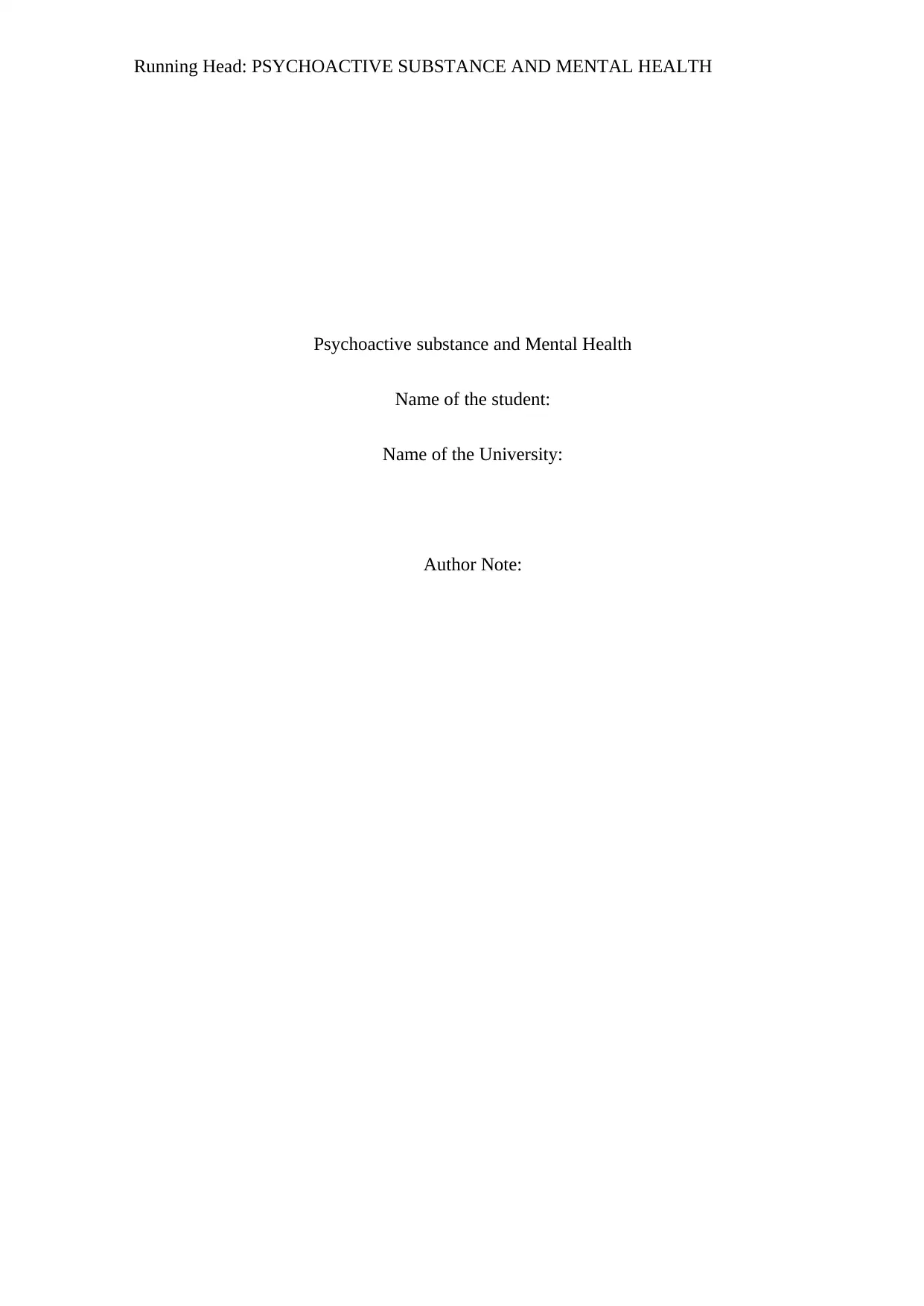
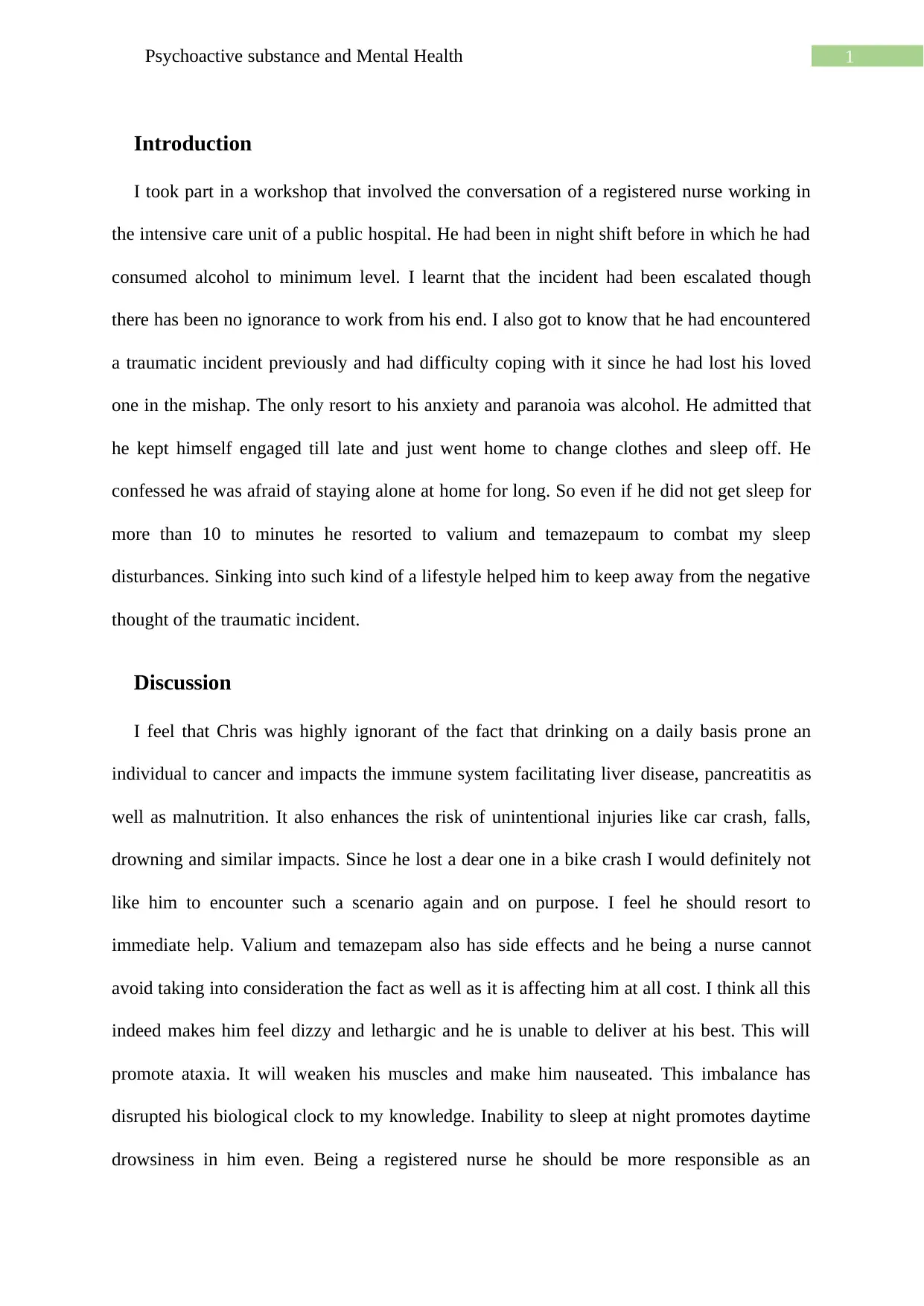
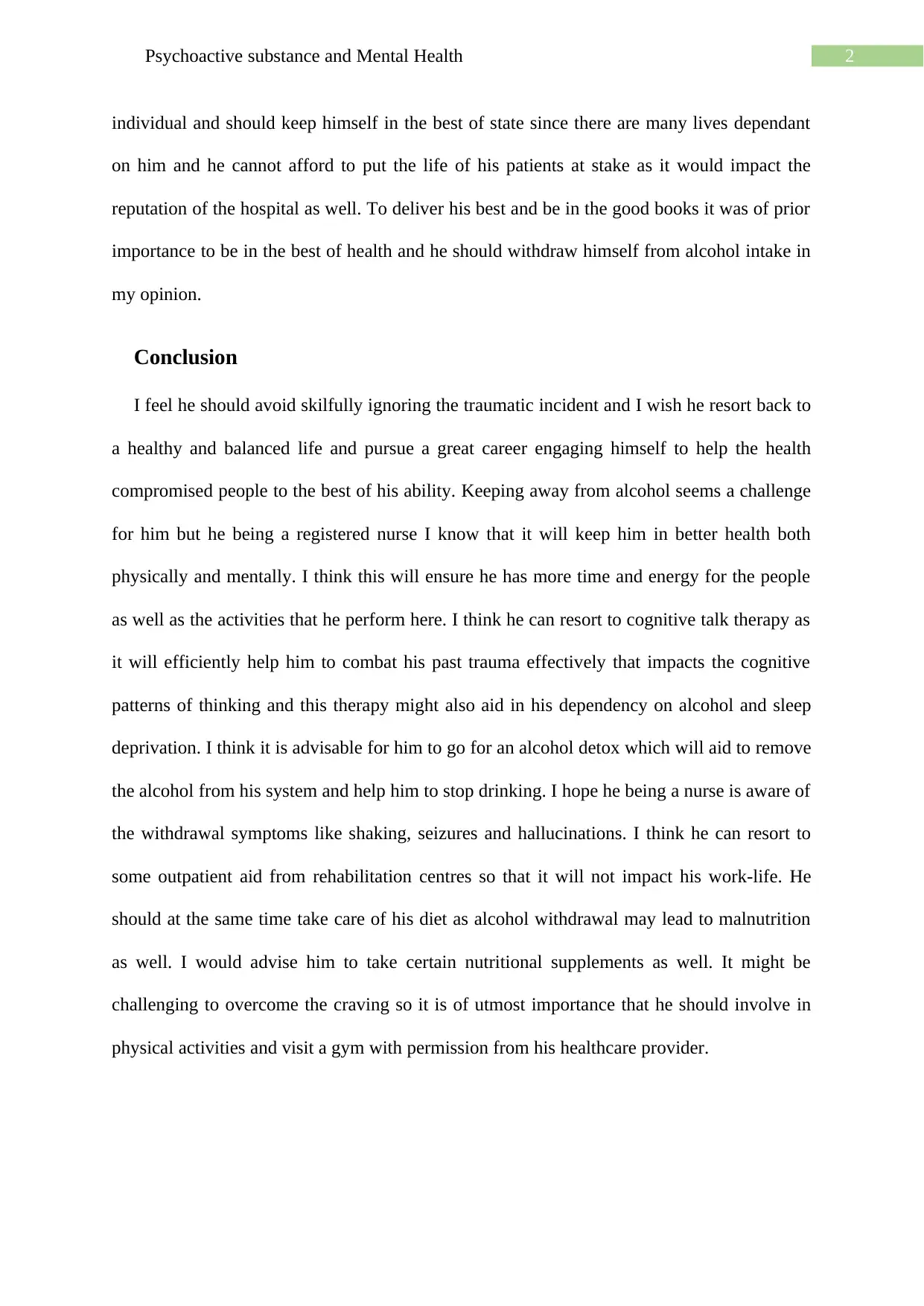

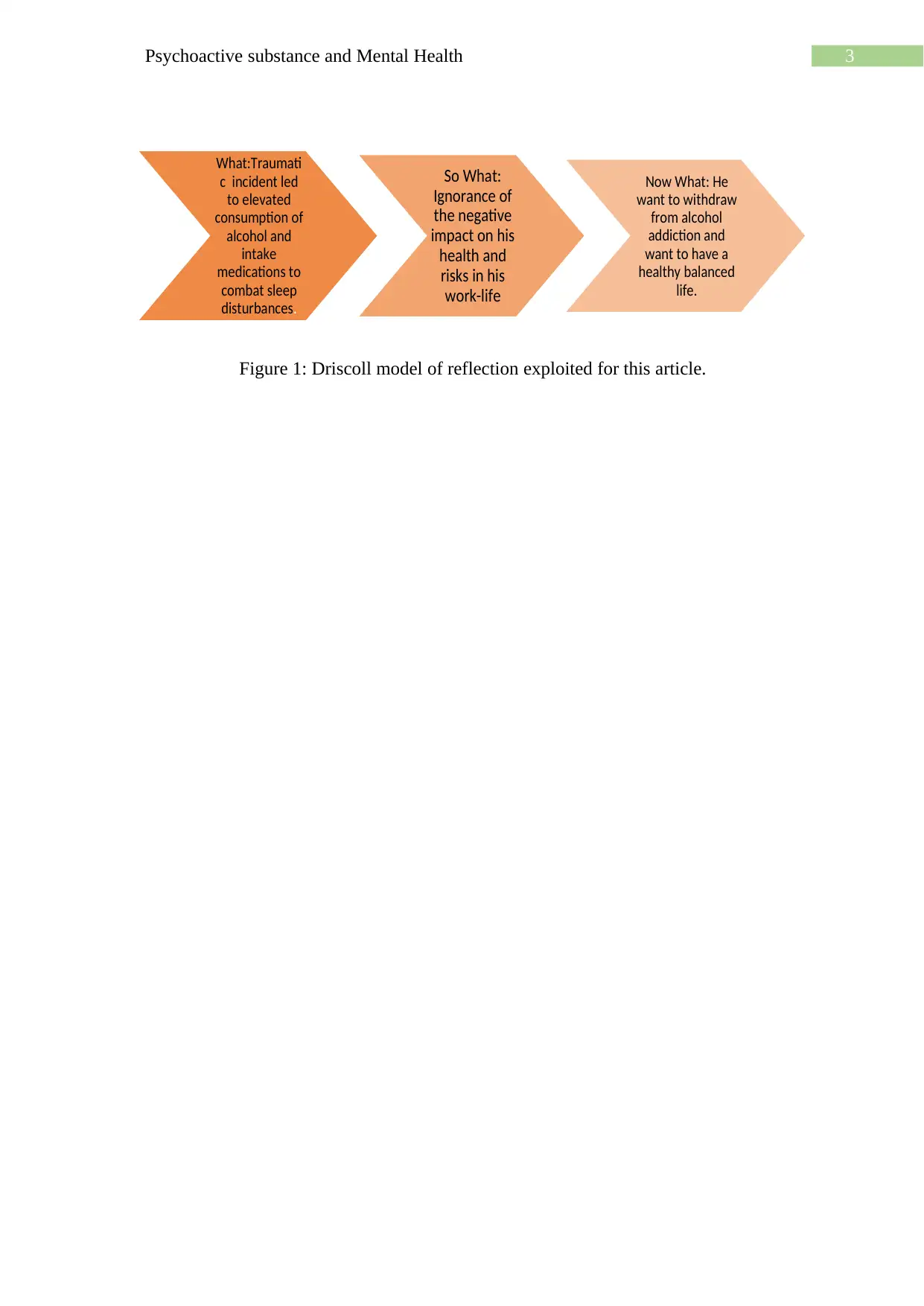
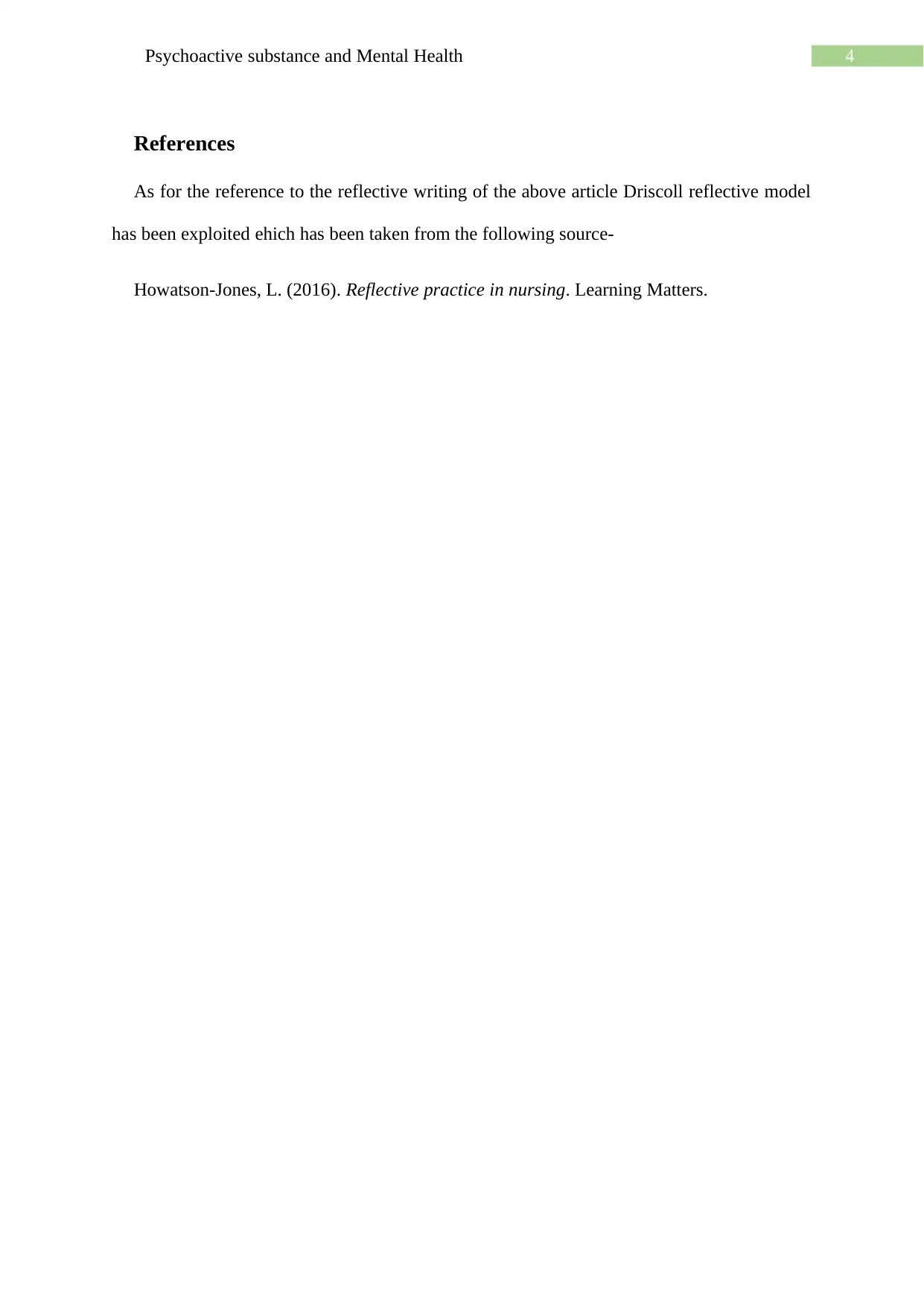






![[object Object]](/_next/static/media/star-bottom.7253800d.svg)